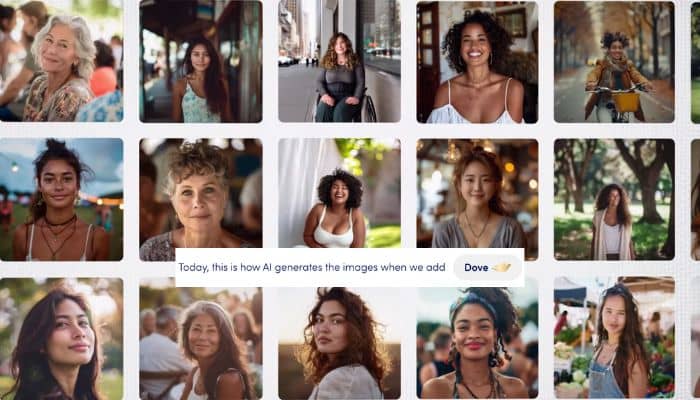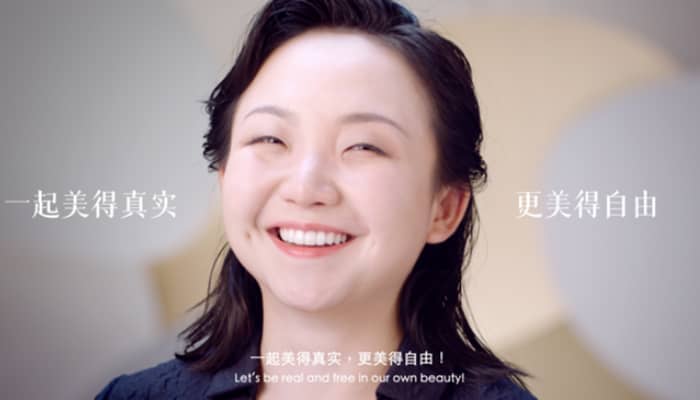London, United Kingdom – Dove, the personal care brand under Unilever, has announced a commitment to never use AI-generated images to portray distorted perceptions of women’s beauty, and instead putting focus on real women portrayals in its ads as part of the brand’s commitment to portray authenticity–and with the brand recently celebrating its 20th year anniversary.
Dove notes that one of the biggest threats to the representation of real beauty is Artificial Intelligence. Today, almost 9 in 10 women and girls say they have been exposed to harmful beauty content online.
In addition, With 90% of the content online predicted to be AI-generated by 2025, the rise of AI is a threat to women’s wellbeing: nearly half feel pressure to alter their appearance because of what they see online, even when they know it’s fake or AI-generated.
With this in mind, Dove will accelerate its efforts to champion transparency and diversity and take action to shatter beauty stereotypes in new and emerging media. Dove is renewing its vows to protect real beauty – committing to never using AI to represent real women in its ads.
Moreover, to help set new digital standards of representation, Dove will create the Real Beauty Prompt Guidelines, easy to use guidance for everyone on how to create images that are representative of Real Beauty on the most popular generative AI programs.
Alessandro Manfredi, chief marketing officer at Dove, said, “At Dove, we seek a future in which women get to decide and declare what real beauty looks like – not algorithms. As we navigate the opportunities and challenges that come with new and emerging technology, we remain committed to protect, celebrate, and champion Real Beauty. Pledging to never use AI in our communications is just one step. We will not stop until beauty is a source of happiness, not anxiety, for every woman and girl.”
Dove’s new campaign, the Code, reflects the impact of AI on beauty and demonstrates the impact real beauty has made to change beauty for the better, 20 years and counting. It also stems from its initial research in 2004, where they found that 2% of women considered themselves beautiful.
Since then, the ‘Campaign for Real Beauty’ has challenged society, media and the beauty industry itself to change its representation of women, be transparent about digital distortion and face-up to the harmful impact unrealistic beauty standards have on women and girls.
Moreover, in its ‘2024 The Real State of Beauty: a global report,’ Dove finds 2-in-5 would give up a year of their life to achieve an ideal look or body. The study shows that while beauty ideals have diversified over the years, the checklist is growing and impossible to meet – from looking healthy (79%) to also being slim (71%), having a small waist (66%) while also being curvy (55%). 2 in 3 women believe that women today are expected to be more physically attractive than their mother’s generation was.





